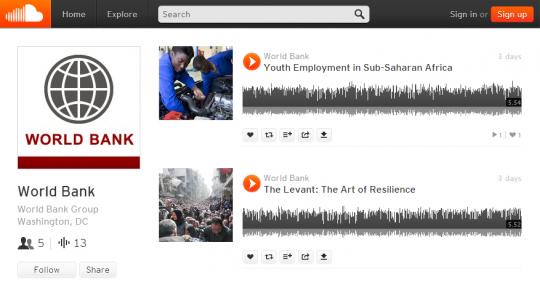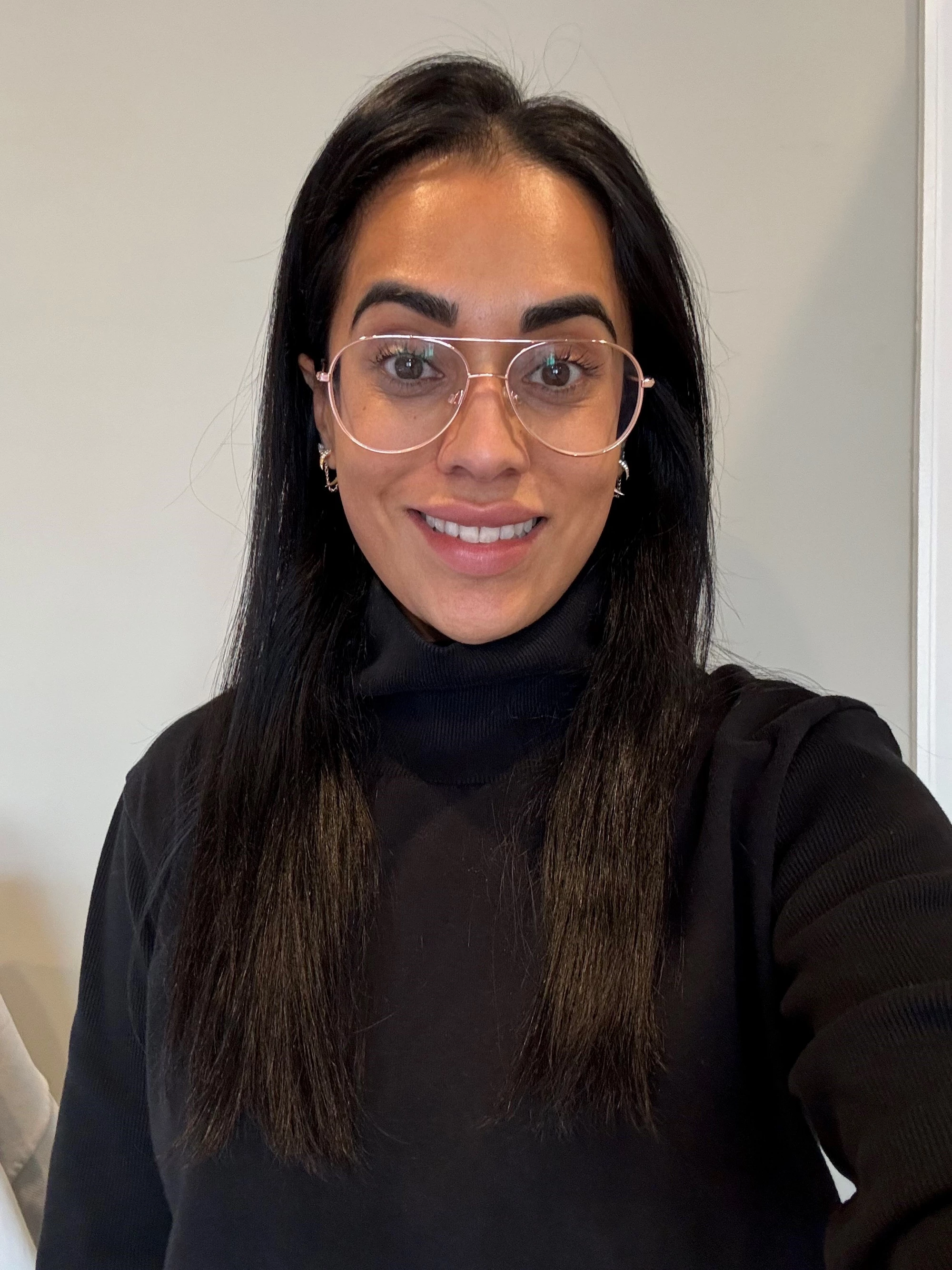
It may not always be called ‘radio’ anymore, but audio communication is not only alive and well – it’s an increasingly vital method to reach diverse audiences. It’s everywhere—online and on-air, on your mobile phone, and your iPad. You can listen to audio while driving, working, puttering around the house, or taking a walk outdoors. It allows listeners to multi-task, which is critical in today’s fast-paced world.
That’s why we’re so excited to launch our own new World Bank Group channel on SoundCloud, a fast-growing international web platform with more than 300 million users. Many describe SoundCloud as the “YouTube of audio” with millions of audio files that are routinely linked on blogs, websites, and social media. Even President Obama shares his speeches on SoundCloud.
Our podcasts will explore such vital issues as poverty eradication, gender equality, climate change, education reform, health access and financial incentives and inclusion. We are telling stories about real people and how their lives are changing as the World Bank Group and partners move to eliminate extreme poverty and boost shared prosperity by 2030. We’re including audio blogs from Bank President Jim Yong Kim and our series, ‘My Favorite Number,’ that features economists and Bank managers.
SoundCloud will allow us to reach parts of the world that rely on audio communications because television is still scarce and internet access is unreliable. The bandwidth to download a podcast is less than needed for video, making audio reports more popular and practical. Studies show that younger audiences are increasingly turning to radio, podcasts and other audio recordings to get their information.
Please subscribe, share, and promote our new World Bank radio platform on SoundCloud.
Here are links to a few of our first podcasts, to give you an idea that information about important subjects can be engaging and even entertaining:
A Kenyan Female Entrepreneur Has Found a Foolproof Solution to Bust ‘Ghostworkers.’
Listen to Why 2 Is a Small Number With Big Problems:


Join the Conversation